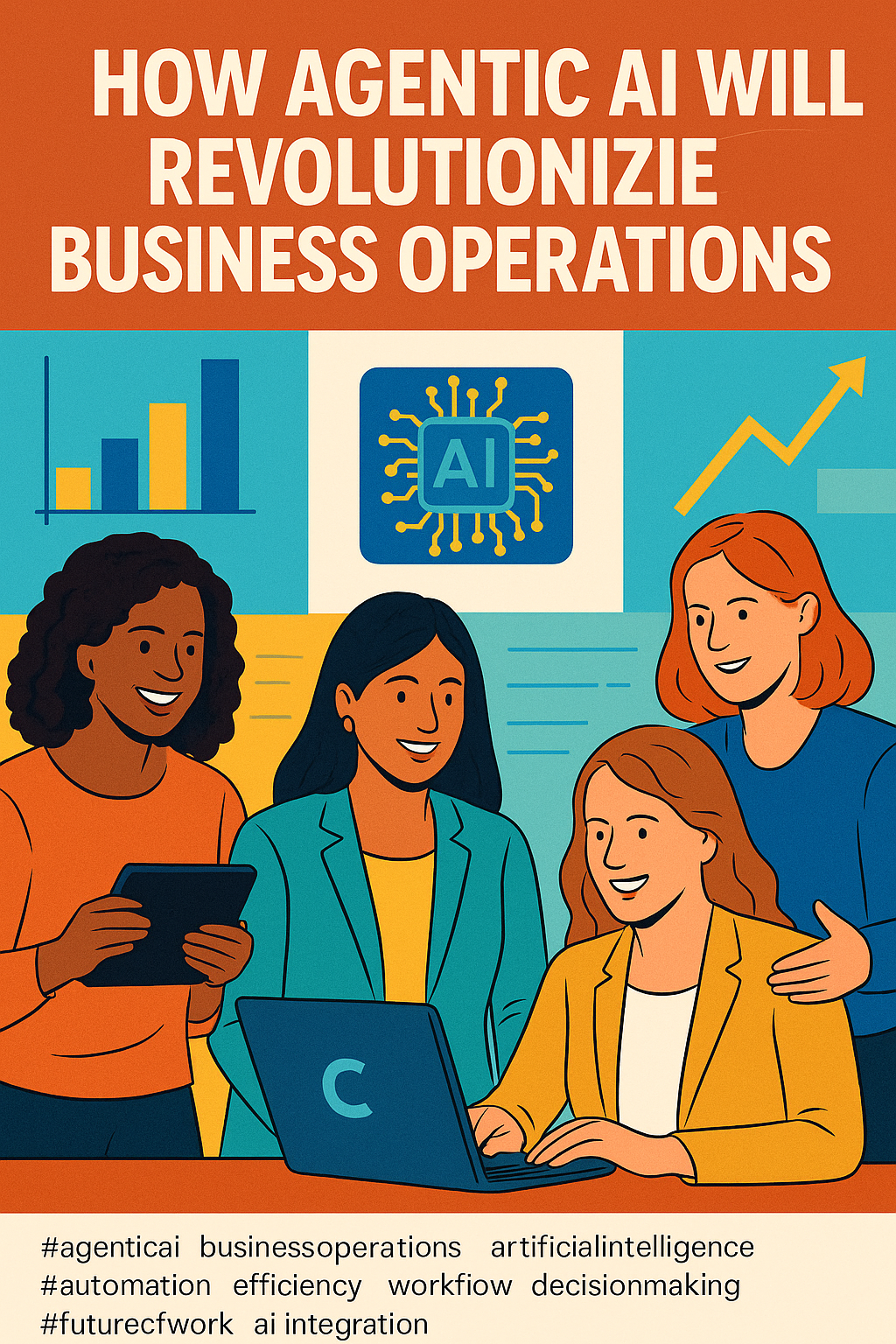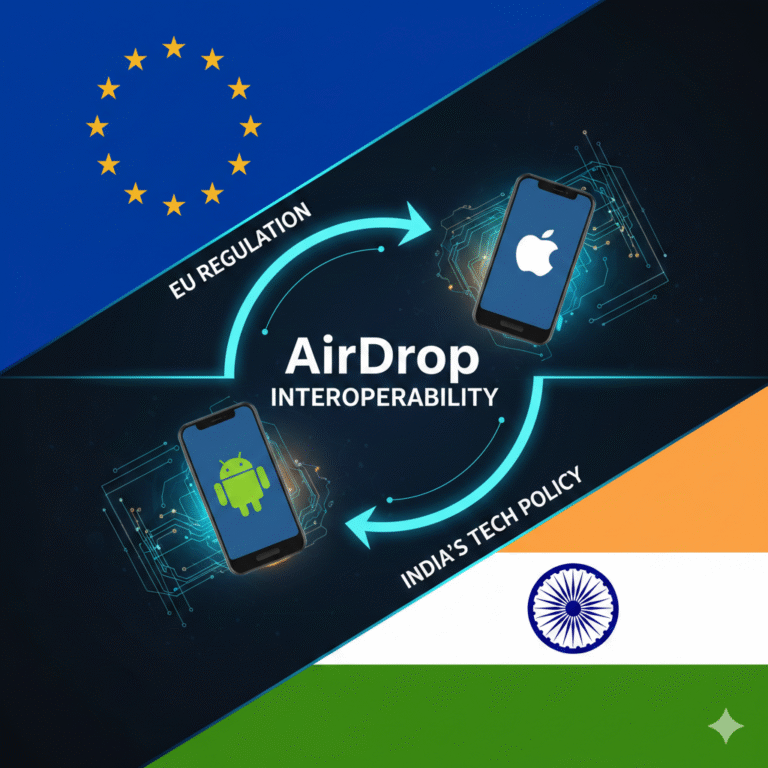In the ever-evolving landscape of business technology, a new wave of artificial intelligence is making its mark. This innovation is known as Agentic AI, and it’s poised to redefine how businesses operate, make decisions, and adapt to complex environments. But what exactly is agentic AI, and why is it becoming the cornerstone of future-ready business models?
What is Agentic AI?
Agentic AI refers to artificial intelligence systems capable of autonomous, goal-directed behavior. Unlike traditional automation tools that follow pre-set instructions, agentic AI can plan, adapt, make decisions, and execute actions independently within defined boundaries. It possesses qualities such as:
- Self-direction
- Long-term planning
- Interactive learning
- Dynamic problem solving
These features make agentic AI suitable for complex business environments where conditions change rapidly and unpredictably.
How Agentic AI Differs from Traditional AI
While traditional AI excels in specific, narrow tasks (like facial recognition or sentiment analysis), agentic AI can operate end-to-end workflows, handling multiple processes simultaneously and adjusting its strategy in real time.
For instance, a traditional AI chatbot answers customer queries based on a predefined script. An agentic AI system, on the other hand, could manage the entire customer service workflow—responding, escalating, analyzing customer sentiment, updating records, and even re-designing responses based on feedback.
Core Technologies Powering Agentic AI
To understand its impact, let’s explore the key technologies enabling this paradigm shift:
- Reinforcement Learning (RL) – Helps agents learn from feedback loops by maximizing cumulative rewards.
- Large Language Models (LLMs) – Enables understanding and generation of human language at scale.
- Cognitive Architectures – Frameworks that mimic human-like problem-solving.
- Multi-Agent Systems – Coordinated systems of multiple intelligent agents.
- Autonomous Planning Algorithms – Tools that let AI sequence tasks efficiently under constraints.
Business Operations Transformed by Agentic AI
Let’s look at some real-world domains where agentic AI is already creating ripples:
1. Supply Chain Optimization
Agentic AI can predict disruptions, reconfigure logistics, negotiate contracts, and manage inventory proactively, leading to:
- Reduced downtime
- Lower operational costs
- Enhanced delivery timelines
2. Human Resource Management
From recruitment to employee engagement, agentic AI can:
- Tailor interview questions
- Automate training modules
- Manage employee satisfaction through dynamic surveys
3. Marketing and Customer Engagement
AI agents now design personalized campaigns, test strategies, and adapt based on customer behavior. This results in:
- Improved ROI on marketing spend
- Better customer retention
4. Finance and Risk Management
Agentic AI can monitor market conditions, perform real-time audits, and predict credit risk. These applications lead to:
- Lower compliance risks
- Faster decision-making
- Improved fraud detection
5. Product Development and Innovation
Using AI agents for R&D allows businesses to:
- Generate prototypes automatically
- Run simulations
- Collect and analyze user feedback
Rare Use Cases in Agentic AI
Beyond common business applications, agentic AI also thrives in niche areas:
- Disaster Recovery Planning: Agents can simulate crisis events and develop contingency plans.
- Environmental Compliance: AI agents can monitor emissions, ensure sustainability goals, and automate reporting.
- Mergers & Acquisitions: Perform due diligence and evaluate business synergies.
Benefits of Adopting Agentic AI in Business
- Scalability: Perform complex tasks without additional human resources.
- Consistency: Avoid human errors in repetitive tasks.
- 24/7 Operation: No fatigue or breaks.
- Increased ROI: Automation lowers cost and increases efficiency.
- Faster Decision-Making: With real-time data analysis and autonomous execution.
Challenges and Considerations
While powerful, deploying agentic AI comes with its own challenges:
- Data Privacy: Ensuring compliance with regulations like GDPR.
- Ethical Decision Making: Designing agents that align with company values.
- Job Displacement: Upskilling and reskilling employees is crucial.
- Transparency: Explaining AI decisions to stakeholders.
Governance and Best Practices
- Human-in-the-Loop Design: Ensures oversight and control.
- Robust Testing: Simulate edge cases before deployment.
- Feedback Loops: Continuous learning and adaptation.
- Security Protocols: Protect against cyber threats and misuse.
Required Tools & Platforms
| Brand/Tool | Functionality | Price Range |
|---|---|---|
| OpenAI GPT Enterprise | Language model-based agents | Custom pricing |
| IBM Watsonx Orchestrate | Business workflow automation | From $100/month |
| Microsoft Copilot | Office & enterprise integration | $30/user/month |
| Amazon Bedrock | Build & scale agentic applications | Pay-as-you-go |
| LangChain | Framework for building AI agents | Free/Open Source |
| Replit Ghostwriter | Collaborative AI agents for coding | From $10/month |
| Zapier with AI | Automate tasks with AI triggers | Free to $50/month |
| Hugging Face Transformers | Build and deploy ML models | Free/Open Source |
| NVIDIA CUDA AI SDK | Hardware acceleration for agents | Free |
FAQs: How Agentic AI Will Revolutionize Business Operations?
- What is agentic AI?
AI that can act independently, make decisions, and learn over time. - How does agentic AI help businesses?
It improves efficiency, reduces costs, and accelerates decision-making. - Is agentic AI the same as autonomous AI?
They’re similar; agentic AI focuses more on decision-making and planning. - What industries benefit the most?
Logistics, healthcare, finance, manufacturing, and retail. - Can agentic AI replace human workers?
It complements rather than replaces, allowing humans to focus on complex tasks. - What are the risks of agentic AI?
Ethical dilemmas, privacy concerns, and transparency challenges. - Is agentic AI expensive?
It varies; many open-source and scalable options exist. - Can small businesses use agentic AI?
Yes, thanks to cloud-based and low-code platforms. - What skills are needed to implement it?
Data engineering, machine learning, domain expertise. - How do I start using agentic AI?
Begin with automation in routine processes and expand gradually. - Are there open-source tools available?
Yes, LangChain, Hugging Face, and more. - Can agentic AI make financial decisions?
It can assist and recommend but should be monitored. - How is it different from traditional automation?
Traditional tools are rule-based; agentic AI adapts and learns. - What’s the future of agentic AI in business?
It’s expected to become a core part of digital transformation. - Can agentic AI collaborate with humans?
Absolutely. Human-agent collaboration is a key design goal.
Conclusion: The Future Belongs to Smart, Autonomous Systems
Agentic AI is not just another buzzword; it’s a pivotal shift in how businesses think, operate, and scale. As enterprises move toward hyper-automation and intelligent systems, those adopting agentic AI early will reap significant competitive advantages.
Whether it’s streamlining supply chains, improving customer satisfaction, or innovating faster, the question is no longer if businesses should adopt agentic AI, but how soon they can do it.










+ There are no comments
Add yours